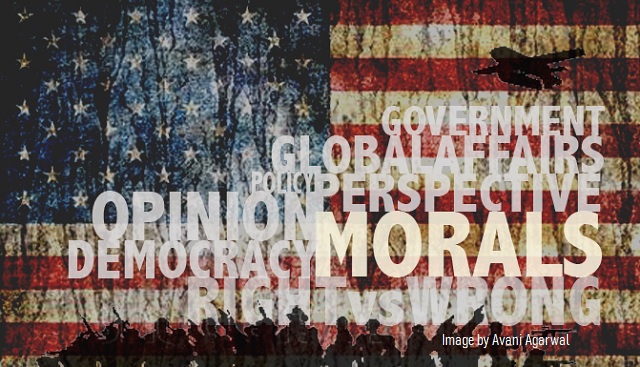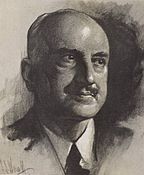Ever argued public policy with people whose State is in fantasy land?
Our problem is that we have to fight unicorns.
Unicorns, of course, are fabulous horse-like creatures with a large spiraling horn on their forehead. They eat rainbows, but can go without eating for years if necessary. They can carry enormous amounts of cargo without tiring. And their flatulence smells like pure, fresh strawberries, which makes riding behind them in a wagon a pleasure.
For all these reasons, unicorns are essentially the ideal pack animal, the key to improving human society and sharing prosperity.
Now, you want to object that there is a flaw in the above argument, because unicorns do not actually exist. This would clearly be a fatal flaw for the claim that unicorns are useful, if it were true. Is it?
Of course not. The existence of unicorns is easily proven. Close your eyes. Now envision a unicorn. The one I see is white, with an orange-colored horn. The unicorn is surrounded by rainbows (perhaps it’s time for lunch). Your vision may look slightly different, but there is no question that when I say “unicorn,” the picture in your mind corresponds fairly closely to the picture in my mind. So, unicorns do exist and we have a shared conception of what they are.
Problem: “the State” is a unicorn
When I am discussing the state with my colleagues at Duke, it’s not long before I realize that, for them, almost without exception, the State is a unicorn. I come from the Public Choice tradition, which tends to emphasize consequentialist arguments more than natural rights, and so the distinction is particularly important for me. My friends generally dislike politicians, find democracy messy and distasteful, and object to the brutality and coercive excesses of foreign wars, the war on drugs, and the spying of the NSA.
But their solution is, without exception, to expand the power of “the State.” That seems literally insane to me—a non sequitur of such monstrous proportions that I had trouble taking it seriously.
Then I realized that they want a kind of unicorn, a State that has the properties, motivations, knowledge, and abilities that they can imagine for it. When I finally realized that we were talking past each other, I felt kind of dumb. Because essentially this very realization—that people who favor expansion of government imagine a State different from the one possible in the physical world—has been a core part of the argument made by classical liberals for at least three hundred years.
Some examples help illustrate the point.
Edmund Burke highlights the unicorn fallacy neatly. The problem is not bad people, or systems that need reform. Come the next election, we’ll have a Messiah! The next reform will lead to Utopia! No. No, we won’t, and no, it won’t.
In vain you tell me that [government] is good, but that I fall out only with the Abuse. The Thing! The Thing itself is the abuse! Observe, my Lord, I pray you, that grand Error upon which all artificial legislative Power is founded. It was observed, that Men had ungovernable Passions, which made it necessary to guard against the Violence they might offer to each other. They appointed Governors over them for this Reason; but a worse and more perplexing Difficulty arises, how to be defended against the Governors?
Adam Smith put it this way in The Wealth of Nations:
It is the system of government, the situation in which [people] are placed, that I mean to censure, not the character of those who have acted in it. They acted as their situation naturally directed, and they who have clamoured the loudest against them would probably not have acted better themselves.
Smith was talking about the employees of the East India Company in this passage. But the insight is a general one: the failure of a system of organization often arises from the incentives, the logic of action, or the inconsistencies, inherent in that system. The people who work in that system probably act in much the same way that other people would act if they found themselves in that system. So, while it’s true that one can imagine a State that works differently, there are no actual human beings who can work in that system and deliver what statists can imagine.
More recently, Ludwig von Mises and F. A. Hayek recognized the problem of unicorns rather deftly. In Epistemological Problems of Economics, Mises said:
Scarcely anyone interests himself in social problems without being led to do so by the desire to see reforms enacted. In almost all cases, before anyone begins to study the science, he has already decided on definite reforms that he wants to put through. Only a few have the strength to accept the knowledge that these reforms are impracticable and to draw all the inferences from it. Most men endure the sacrifice of the intellect more easily than the sacrifice of their daydreams. They cannot bear that their utopias should run aground on the unalterable necessities of human existence. What they yearn for is another reality different from the one given in this world … They wish to be free of a universe of whose order they do not approve.
Perhaps the most famous, and devastating, version of “skewer the unicorn” is Hayek’s, when he said in The Fatal Conceit that “the curious task of economics is to demonstrate to men how little they really know about what they imagine they can design.”
The Munger test
In debates, I have found that it is useful to describe this problem as the “unicorn problem,” precisely because it exposes a fatal weakness in the argument for statism. If you want to advocate the use of unicorns as motors for public transit, it is important that unicorns actually exist, rather than only existing in your imagination. People immediately understand why relying on imaginary creatures would be a problem in practical mass transit.
But they may not immediately see why “the State” that they can imagine is a unicorn. So, to help them, I propose what I (immodestly) call “the Munger test.”
- Go ahead, make your argument for what you want the State to do, and what you want the State to be in charge of.
- Then, go back and look at your statement. Everywhere you said “the State” delete that phrase and replace it with “politicians I actually know, running in electoral systems with voters and interest groups that actually exist.”
- If you still believe your statement, then we have something to talk about.
This leads to loads of fun, believe me. When someone says, “The State should be in charge of hundreds of thousands of heavily armed troops, with the authority to use that coercive power,” ask them to take out the unicorn (“The State”) and replace it with George W. Bush. How do you like it now?
If someone says, “The State should be able to choose subsidies and taxes to change the incentives people face in deciding what energy sources to use,” ask them to remove “The State” and replace it with “senators from states that rely on coal, oil, or corn ethanol for income.” Still sound like a good idea?
How about, “The State should make rules for regulating sales of high performance electric cars.” Now, the switch: “Representatives from Michigan and other states that produce parts for internal combustion engines should be in charge of regulating Tesla Motors.” Gosh, maybe not … In my experience, we spend too much time fighting with our opponents about their unicorns. That is, we claim that the unicorn/State itself is evil, and cannot be tamed in a way that’s consistent with liberty. The very mental existence of the unicorn is the target of our arguments.
The problem, of course, is that the unicorn they imagine is wise, benevolent, and omnipotent. To tell them that their imaginations are wrong is useless. So long as we insist that our opponents are mistaken about the properties of “the State”— which doesn’t exist in the first place, at least not in the way that statists imagine—then we will lose the attention of many sympathetic people who are primarily interested in consequences.
To paraphrase Hayek, then, the curious task of the liberty movement is to persuade citizens that our opponents are the idealistic ones, because they believe in unicorns. They understand very little about the State that they imagine they can design.
Michael Munger is the director of the philosophy, politics, and economics program at Duke University. He is a past president of the Public Choice Society.
EDITORS NOTE: The featured image is courtesy of FEE and Shutterstock.





